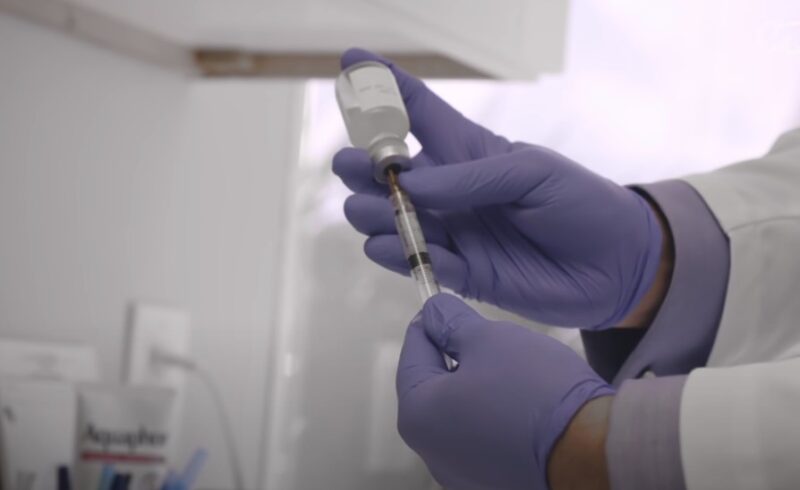Turtling syndrome, colloquially known as “turtling”, is a term often used in men’s health forums to describe a phenomenon where the penis appears to retract or shrink temporarily. While the term might sound humorous, it can be a genuine concern for many men.
In this article, we aim to shed light on 7 early indicators of this syndrome, its potential causes, and the implicati ons it might have on one’s health.
How to Recognize It?
| Sign | Description | Causes | Implications |
|---|---|---|---|
| Reduced Length and Girth | The penis appears visibly shorter and thinner than its usual size when flaccid. | Cold temperatures, anxiety, overexertion from exercises. | Typically temporary; penis should return to regular size once the causative factor is removed. |
| Coldness | The penis might feel cold to the touch, especially compared to other parts of the body. | Reduced blood flow, cold environments, emotional stress. | Sign of reduced circulation; important to ensure proper blood flow. |
| Reduced Sensitivity | The penis might feel less sensitive to touch or other stimuli. | Reduced blood flow or nerve compression. | Temporary numbness might not be immediate concern, but prolonged loss of sensation should be addressed medically. |
| Discoloration | The skin of the penis might appear darker, or there might be a bluish tint. | Reduced blood flow or venous congestion. | Often temporary; if persistent, seek medical advice. |
| Hardened Feel | Instead of its usual soft and spongy feel when flaccid, the penis might feel harder or more rigid. | Reduced blood flow or a protective response from the body. | Temporary hardened state usually not a concern; if persistent with pain, consult a doctor. |
| Retraction | The penis, especially the glans or head, might retract closer to the body. | Protective response due to cold temperatures, anxiety, or other factors. | Typically temporary; should resolve once the causative factor is addressed. |
| Discomfort or Pain | Some individuals might feel discomfort, tightness, or even pain. | Overexertion from exercises, trauma, or other injuries. | Pain indicates something might be wrong; if severe or persistent, seek medical attention. |
The Science Behind It

Turtling syndrome is not a medically recognized term, but it’s widely used in popular culture to describe the temporary retraction or shrinkage of the penis. This can be due to various reasons, ranging from cold temperatures to psychological factors.
The penis is a complex organ made up of various tissues, blood vessels, and muscles. When exposed to certain stimuli, these tissues can contract, leading to the appearance of shrinkage.
This is a natural response, but when it happens frequently or without a clear cause, it can be a sign of underlying issues.
Common Misconceptions
Many people believe that turtling is solely a result of cold temperatures. While cold can indeed cause retraction, it’s not the only factor. Psychological stress, certain medications, and other physical conditions can also lead to this phenomenon.
Physical Triggers

Physical factors play a significant role in turtling syndrome. Recognizing these can help in understanding and potentially mitigating the issue.
Exposure to Cold
It’s common knowledge that cold temperatures can cause the penis to retract. This is a protective mechanism of the body to preserve heat. However, if you notice excessive retraction even in mildly cold environments, it might be an early sign of turtling syndrome.
Overexertion During Exercise
Intense physical activity, especially without a proper warm-up, can divert blood from the penis to major muscle groups. This can cause temporary shrinkage. If you notice this happening frequently, even with moderate exercise, it’s worth paying attention to.
Psychological Factors Causing the Syndrome

The mind plays a pivotal role in the functioning of our body. Psychological factors can sometimes have a more profound effect on turtling than physical ones.
Stress and Anxiety
Stress and anxiety can lead to a host of physical responses, one of which is the retraction of the penis. Chronic stress, in particular, can lead to frequent episodes of turtling, making it an essential factor to consider.
Past Traumas
Past traumatic experiences, especially those related to sexual abuse or severe embarrassment, can manifest in various ways. One such manifestation can be turtling syndrome. Recognizing and addressing these traumas is crucial for overall well-being.
Medications and Drugs

Certain medications and drugs can influence blood flow and muscle contractions, leading to turtling syndrome. Being aware of these can help in identifying the root cause.
Blood Pressure Medications
Some medications used to treat hypertension can cause the penis to retract. This is due to their effect on blood vessels, leading to reduced blood flow to the penis. If you’re on such medications and notice turtling, consult your doctor.
Recreational Drugs
Certain recreational drugs, especially stimulants, can lead to temporary shrinkage of the penis. This is due to their effect on the cardiovascular system and the central nervous system. Regular use can exacerbate the symptoms of turtling syndrome.
Lifestyle Habits That Can Cause This
Our daily habits and lifestyle choices can have a significant impact on our overall health, including the health of our penis.
Poor Diet
A diet lacking in essential nutrients can affect blood circulation, leading to issues like turtling. Consuming foods rich in antioxidants and vitamins can help in maintaining good penile health.
Smoking
Tobacco smoking can lead to constriction of blood vessels, reducing blood flow to various parts of the body, including the penis. This can result in frequent episodes of turtling, among other health issues.
Underlying Medical Conditions
Sometimes, turtling syndrome can be a sign of more severe underlying medical conditions that require immediate attention.
Peyronie’s Disease
This is a condition where scar tissue forms inside the penis, leading to curved and painful erections. One of the early signs can be the retraction or shrinkage of the penis, making it essential to consult a urologist if you suspect this condition.
Hormonal Imbalances
Testosterone plays a crucial role in male sexual health. A drop in testosterone levels can lead to various symptoms, including turtling. Regular check-ups and hormonal assessments can help in early detection and treatment.
Prevention and Treatment

Understanding the root cause of turtling syndrome is the first step towards addressing it. The next step is prevention and treatment.
Lifestyle Changes
Adopting a healthy lifestyle, including a balanced diet, regular exercise, and avoiding smoking, can significantly reduce the chances of turtling. These changes not only benefit penile health but overall well-being.
Professional Help
If you suspect that the cause of your turtling syndrome is psychological or due to an underlying medical condition, seeking professional help is crucial. A urologist or therapist can provide guidance, treatment options, and support.
FAQs:
How does a flaccid penis appear when the dartos has separated?
It retracts significantly into the body, with about 80% of the penis located inside the body when not aroused.
What is Chronic Penile Turtling?
It refers to medical conditions where a flaccid penis remains consistently smaller than usual.
How do emotions impact flaccid penis size?
Negative emotions like stress, anxiety, and fear can cause the penis to shrink due to the activation of the dartos fascia and penile cremaster muscles.
Can medications affect flaccid penis size?
Yes, certain medications, especially amphetamines and some prescribed for enlarged prostate can cause the penis to shrink.
What are the effects of problematic neonatal circumcisions?
They can lead to chronic penile turtling and a range of adverse effects.
Final Thoughts
In conclusion, while turtling syndrome might seem like a minor inconvenience, it can be a sign of deeper issues, both physical and psychological. Recognizing the early signs and seeking appropriate intervention can lead to better sexual health and overall well-being.















